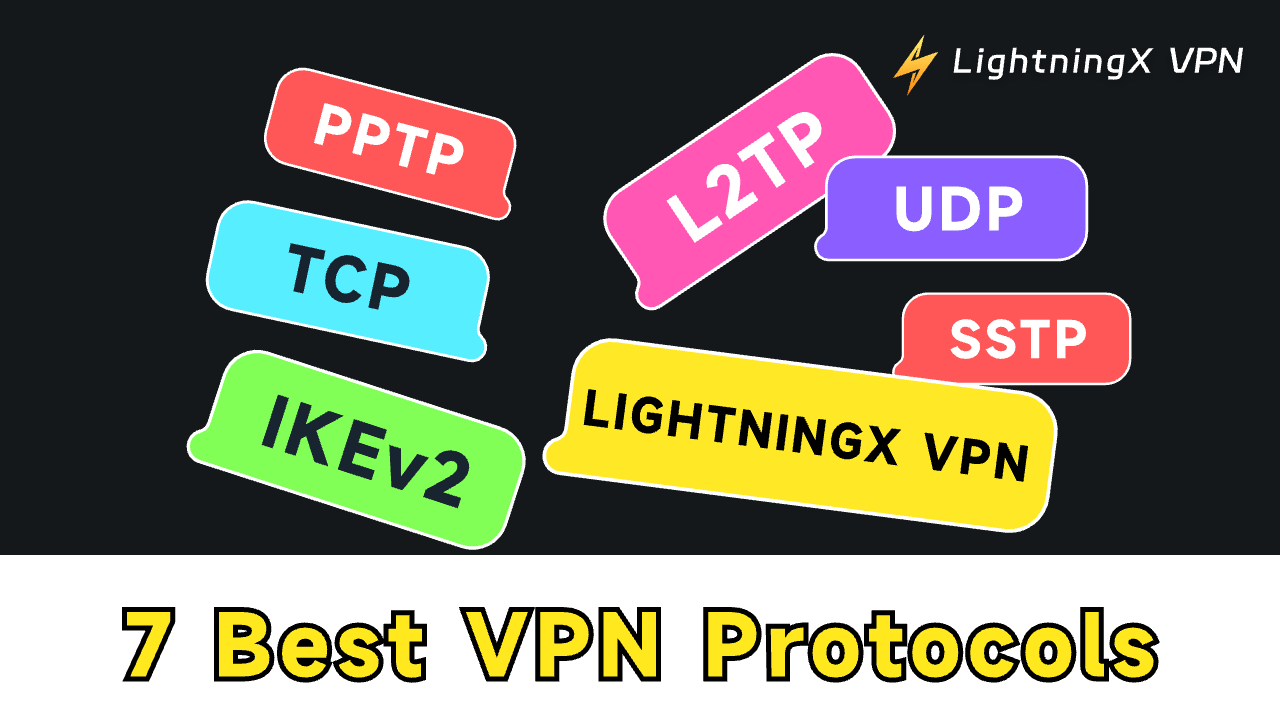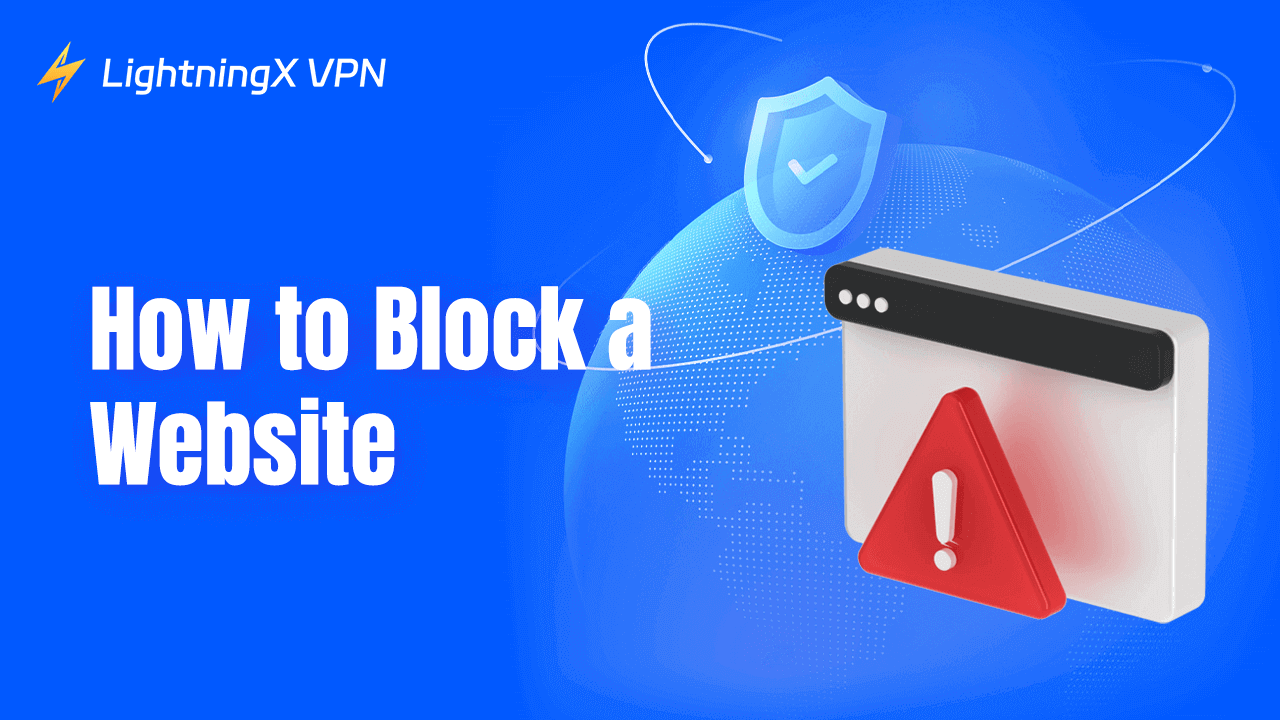Online privacy and security have become more important than ever. Whether you’re browsing the internet at home, connecting to public Wi-Fi, or accessing your work network remotely, using a Virtual Private Network (VPN) can protect your data from prying eyes.
But with so many VPN protocols available, which one is the best for you? This blog will guide you through the best VPN protocol, helping you choose the right one.
Knowing About Best VPN Protocol: What IT IS?
A VPN protocol is a set of rules or instructions that determine how data is transmitted between your device and the VPN server. Each protocol has its way of keeping your data secure, private, and, in some cases, fast.
Choosing the best VPN protocol depends on what you value most—security, speed, ease of use, or compatibility.
7 Best VPN Protocols
We have 7 best VPN protocols for you!
1. OpenVPN: the Security Champion
OpenVPN is one of the most popular VPN protocols. It is widely known for its strong security features, making it a top choice for those who prioritize privacy.
Why OpenVPN is Great:
- Security: OpenVPN is highly secure with military-grade encryption (AES-256), protecting your data from hackers and snoopers.
- Flexibility: It is compatible with most operating systems, including Windows, macOS, Linux, Android, and iOS.
- Customizable: You can configure OpenVPN to balance between security and speed, making it suitable for various use cases.
When to Use OpenVPN:
- If you need strong security, such as when accessing sensitive information or using public Wi-Fi.
- If you want a protocol that can work on almost any device or operating system.
2. WireGuard: the New Faster Star
WireGuard is a relatively new VPN protocol, but it has quickly gained popularity for its simplicity and performance.
Why WireGuard is Great:
- Speed: WireGuard is designed to be lightweight with cutting-edge cryptography, which results in faster connection speeds.
- Efficiency: The protocol uses less CPU, making it ideal for mobile devices with limited battery life.
- Simplicity: Its small codebase means it’s easier to implement and maintain, reducing the chance of errors.
When to Use WireGuard:
- If you need a fast and efficient VPN connection, especially on mobile devices.
- If you want a modern protocol that is easy to set up and use.
3. IKEv2/IPsec: the Mobile User’s Choice
IKEv2 (Internet Key Exchange version 2), when paired with IPsec (Internet Protocol Security), is another reliable VPN protocol.
Why IKEv2/IPsec is Great:
- Stability: IKEv2/IPsec is excellent at maintaining a steady connection, even when you switch networks from Wi-Fi to mobile data.
- Speed: It offers fast connection speeds, making it suitable for streaming and browsing.
- Security: The protocol is also secure, using strong encryption to protect your data.
When to Use IKEv2/IPsec:
- If you frequently switch between networks, such as when using mobile data and Wi-Fi.
- If you need a fast and reliable VPN connection on your smartphone or tablet.
4. L2TP/IPsec: the User-friendly Option
L2TP (Layer 2 Tunneling Protocol) combined with IPsec is another common VPN protocol that provides a good balance between security and ease of use.
Why L2TP/IPsec is Great:
- Ease of Use: Most devices have built-in support for L2TP/IPsec, making setup quick and easy.
- Compatibility: It works well across different devices and operating systems, including Windows, macOS, Linux, Android, and iOS.
- Security: The protocol uses IPsec for encryption, providing a decent level of security.
When to Use L2TP/IPsec:
- If you want a simple and easy-to-use VPN protocol that works out of the box.
- If you’re using an older device or operating system that doesn’t support newer protocols.
5. SSTP: the Windows Specialist
Secure Socket Tunneling Protocol (SSTP) is a VPN protocol developed by Microsoft.
Why SSTP is Great:
- Integration: SSTP works seamlessly with Windows, offering a native solution for VPN connections.
- Firewall bypass: It can bypass most firewalls, making it useful for accessing restricted networks.
- Security: SSTP offers strong encryption, ensuring your data remains private.
When to Use SSTP:
- If you’re a Windows user and want a protocol that integrates well with your system.
- If you need to bypass strict firewalls or access restricted networks.
6. Shadowsocks: the Censorship Buster
Shadowsocks is not technically a VPN protocol but a secure proxy designed to help users bypass internet censorship.
Why Shadowsocks is Great:
- Censorship circumvention: Shadowsocks is specifically designed to bypass censorship, making it ideal for users in countries with restricted internet access, like China.
- Speed: It’s generally faster than most VPN protocols. Because it doesn’t encrypt data in the same comprehensive way a full VPN does, focusing instead on evading detection.
- Simplicity: It’s straightforward to set up and use, especially for tech-witted users familiar with proxy settings.
When to Use Shadowsocks:
- If you need to bypass internet censorship in restrictive environments.
- If you’re looking for a lightweight solution to maintain speed while evading firewalls.
7. V2Ray (VLESS): the Flexible Powerhouse
V2Ray is a versatile and powerful platform that supports multiple protocols, including VLESS, an evolution of the original VMess protocol.
Why V2Ray (VLESS) is Great:
- Flexibility: V2Ray supports multiple protocols and configurations, making it highly adaptable to different network environments.
- Invisibility: VLESS, in particular, is designed to be hard to detect, which is crucial for users in highly restrictive environments.
- Customization: V2Ray allows for extensive customization, making it ideal for advanced users who want to tailor their network traffic.
When to Use V2Ray (VLESS):
- If you need a stealthy and flexible solution to avoid censorship and throttling.
- If you are an advanced user who wants to customize your VPN or proxy setup.
How to Choose the Best VPN Protocol for You
With so many VPN protocols available, choosing the right one can seem daunting. Here’s a quick review to help you decide:
1. For Bypassing Censorship: Shadowsocks
Shadowsocks is ideal for those who need to bypass internet censorship without compromising speed.
2. For Flexibility and Invisibility: V2Ray (VLESS)
V2Ray (VLESS) is perfect for advanced users who need a customizable and hard-to-detect solution.
3. For Security: OpenVPN and WireGuard
OpenVPN and WireGuard are still top choices for those who prioritize security and encryption.
The mentioned protocols are well known for guarding user’s data privacy and IP address. LightningX VPN is an expert in such a field.

Tips:
It employs WireGuard and VLESS protocols, providing cutting-edge encryption and performance. Furthermore, for users in regions with heavy internet censorship, like China, LightningX VPN’s support for Shadowsocks offers a reliable way to bypass restrictions without sacrificing connection speed.
It supports Android/IOS/macOS/Windows/tvOS/Android TV devices.
4. For Mobility: IKEv2/IPsec
IKEv2/IPsec remains a solid option for users who need a stable connection on mobile devices.
5. For Ease of Use: L2TP/IPsec and SSTP
L2TP/IPsec and SSTP are user-friendly options, particularly if you’re on Windows.
Conclusion
Choosing the best VPN protocol depends on your own needs. Whether you prioritize security, speed, or ease of use, there’s a VPN protocol that’s right for you. If you’re using a VPN service like LightningX VPN, make sure it supports the protocol that best matches your requirements.













